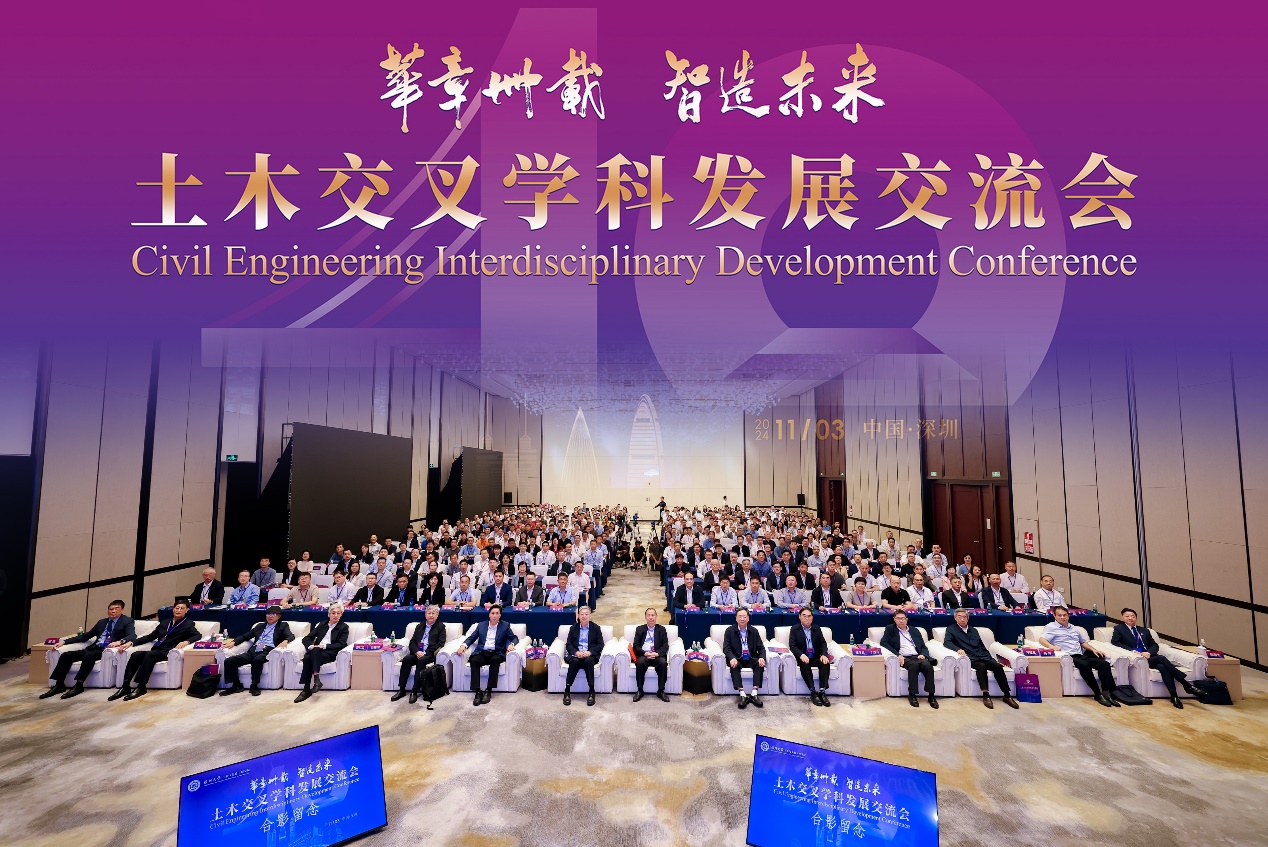2024 marks the 40th anniversary of the School of Civil and Transportation Engineering at Shenzhen University. Standing at a new historical starting point of "forty years without confusion", on November 3rd, the college held an interdisciplinary development exchange meeting on civil engineering, inviting academicians and renowned experts and scholars at the forefront of the discipline to guide the future development of the college.
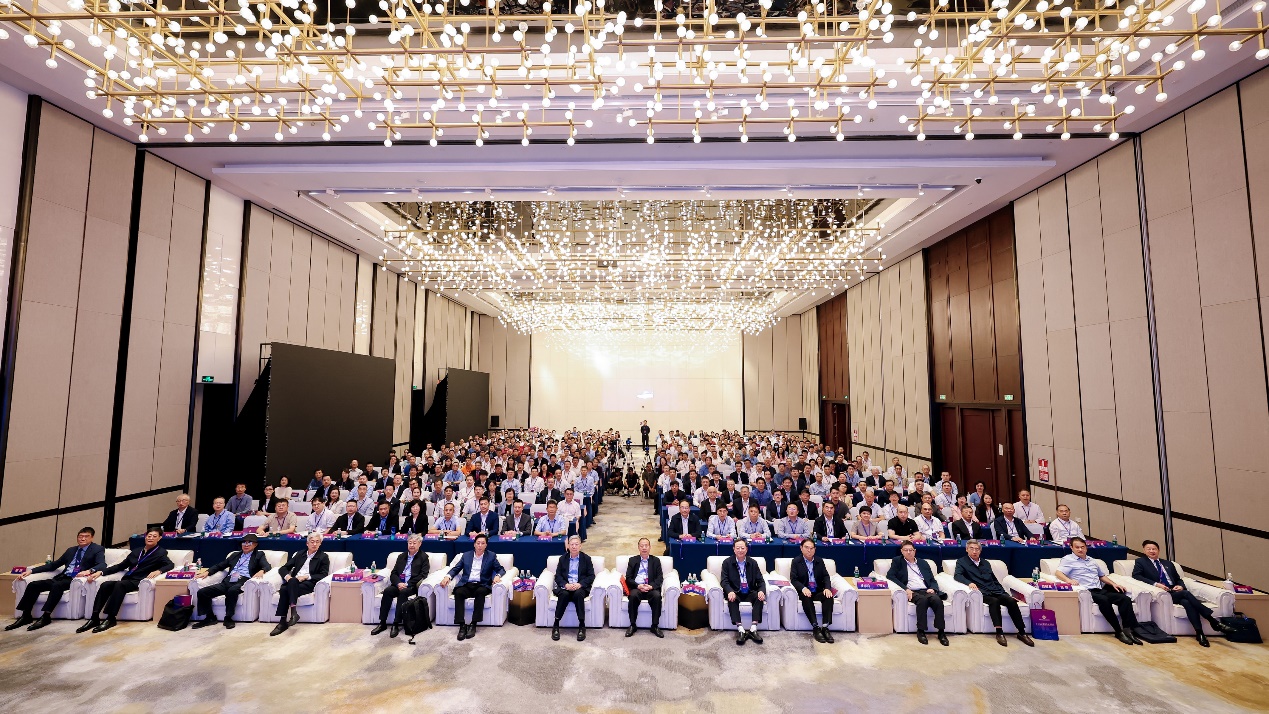
More than 400 experts and scholars from 149 units participated in this conference. Miao Changwen, an academician of the CAE Member and the director of the Academic Committee of Southeast University, Nie Jianguo, an academician of the CAE Member and the director of the Academic Committee of Tsinghua University, Ding Lieyun, an academician of the CAE Member and the former dean of Huazhong University of Science and Technology, Zheng Jianlong, an academician of the CAE Member and the former dean of Changsha University of Technology, Lu Chunfang, an academician of the CAE Member and the former vice minister of the Ministry of Railways, Xing Feng, an academician of the CAE Member and the dean of Jinan University, made invited presentations at the conference.
Li Qingquan, secretary of the Party Committee of Shenzhen University and an academician of the CAE Member, Mao Junfa, dean of Shenzhen University and an academician of the CAS Member, Xie Heping, dean of the Institute of Geosciences and Green Energy of Shenzhen University and an academician of the CAE Member, Du Yanliang,deanof the Institute of Urban Smart Transport and Safety Operation and Maintenance of Shenzhen University and an academician of the CAE Member, Guo Renzhong,deanof the Institute of Smart Cities of Shenzhen University and an academician of the CAE Member, Meng Jianmin, director of the original design and research center of Shenzhen University and an academician of the CAE Member, and Zhou Hui, vicedeanof Shenzhen University, attended the conference. Chen Xiangsheng, Dean of School of Civil and Traffic Engineering of Shenzhen University and academician of CAE Member, presided over the meeting.
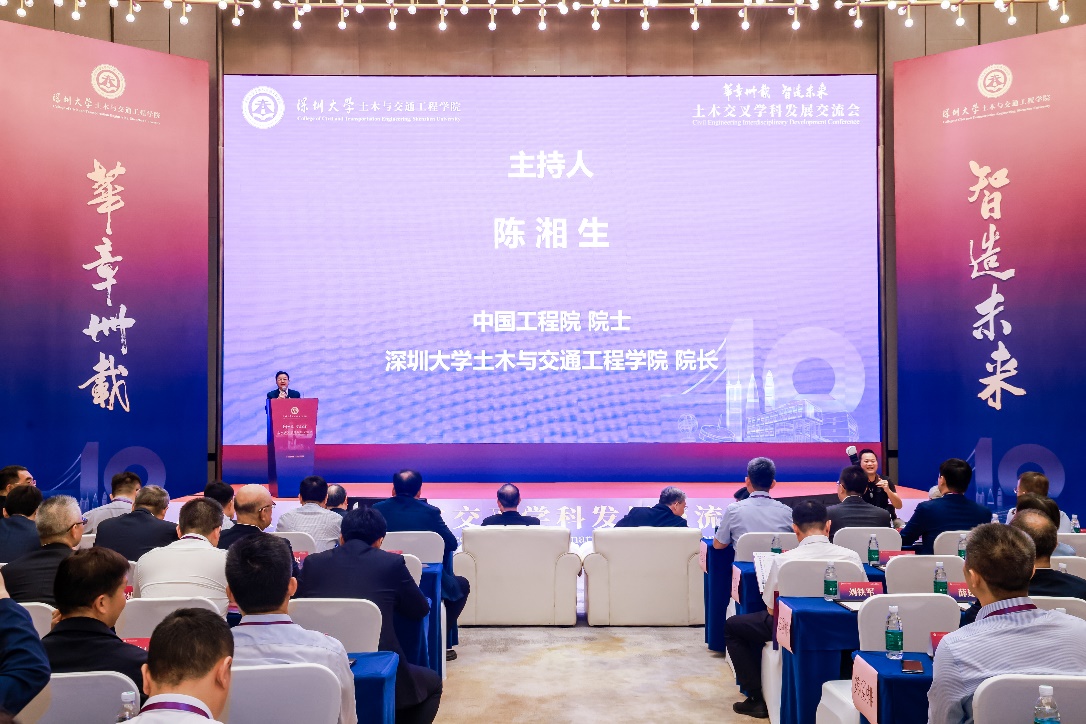
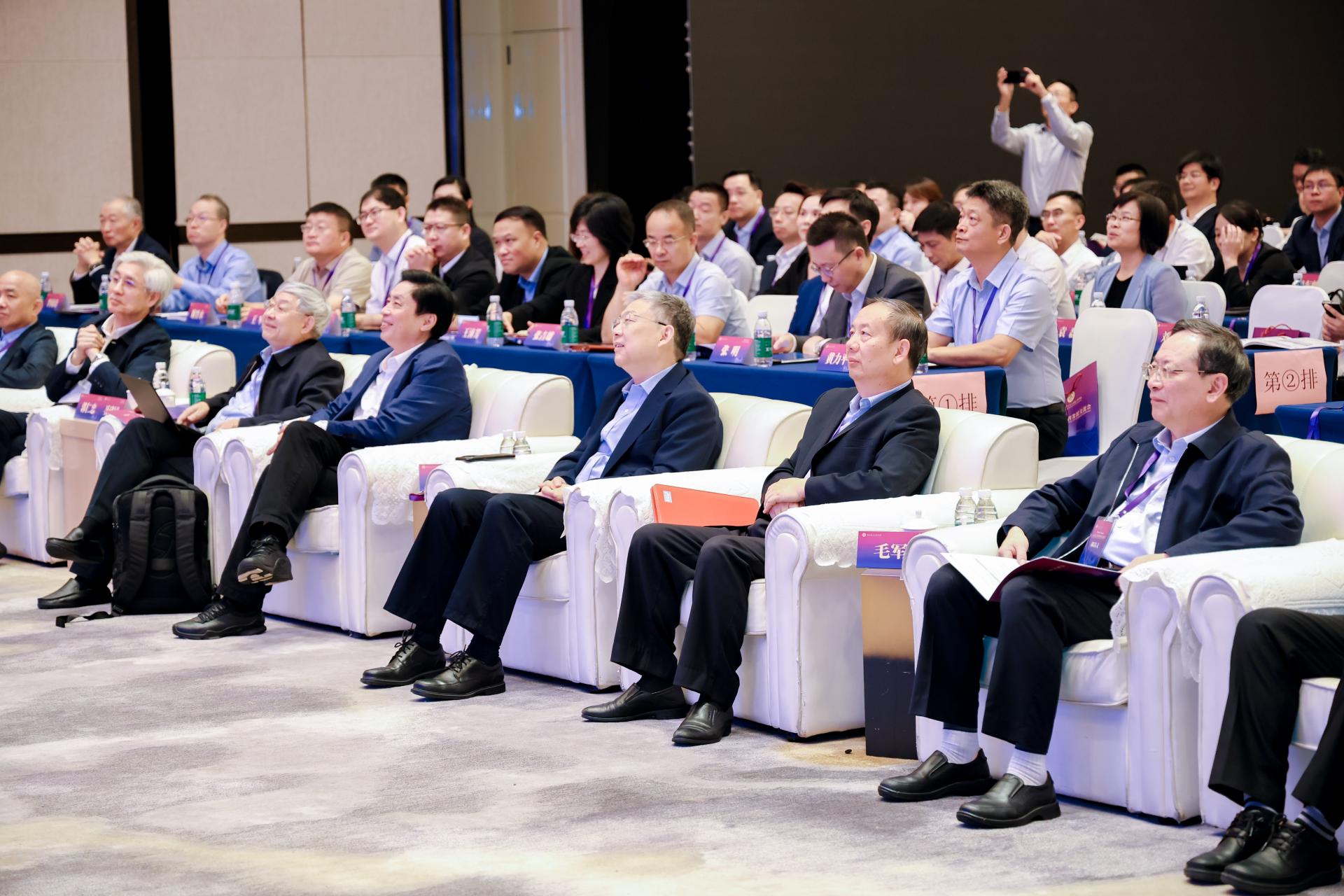
Three "high" and three "many" achievements of the talent platform of Shenzhen University of Technology and Communications
Mao Jun delivered a welcome speech. He stated that the birth and development of the School of Civil and Transportation Engineering conforms to the needs of Shenzhen as a forefront of reform and opening up. Through continuous development, transformation, integration and growth, the discipline of civil engineering has become one of the best disciplines at Shenzhen University, making important contributions to the high-quality development of the school.
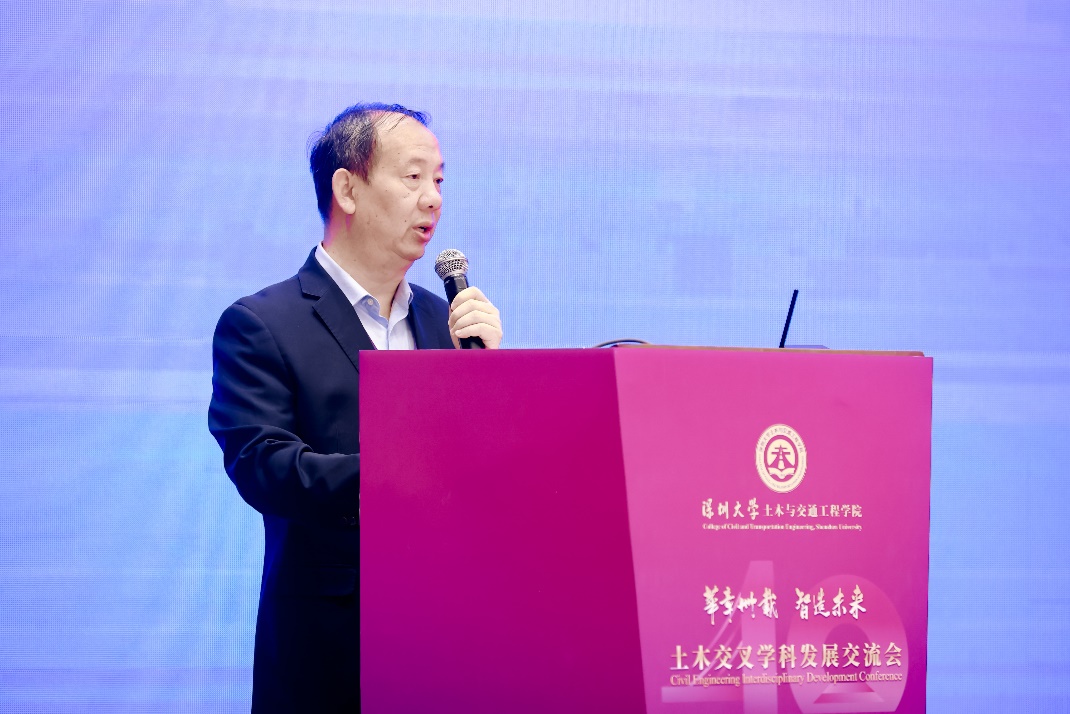
Mao Junfa summarized that the School of Civil and Transportation Engineering at Shenzhen University has three "advantages": there are many high-level talents, with a total of 35 high-level talents in the school, including 8 Chinese and foreign academicians; There are many high-level scientific research platforms, and among the 9 national level scientific research platforms of the school, the School of Civil and Transportation Engineering accounts for 4; There are many high-quality achievements. Academician Xie Heping's team's "Direct Electrolysis Hydrogen Production without Desalination of Seawater" has been selected as one of the "Top Ten Scientific Advances in China" for 2022, and Academician Chen Xiangsheng's team's "Key Technology for Undermining Subway Stations in Prosperous Urban Areas" has achieved significant innovation in subway station construction methods.

Mao Junfa expressed the hope that the college will take this exchange meeting as a new starting point for development, stride forward with the ideas and wisdom of all academicians and experts, and make updated and greater contributions on the new journey.
Academic Feast, Academicians Gather to Focus on the Future Development of Civil Engineering
The specially invited report of this meeting was rich in content and broad in perspective. Six academicians of the CAE Member focused on the current focus of civil engineering and looked forward to the frontier, pointing out the direction for future research and application of the college.
Starting from the forefront of materials science, Miao Changwen delved into the innovative research of cement-based metamaterials and their potential applications in the engineering field under the title of "Research on Cementitious Metamaterials", providing valuable reference directions for future innovation in civil engineering materials. Nie Jianguo's report "Technological Innovation Promotes High Quality Development of Civil Engineering" takes multiple major engineering projects in Shenzhen that use steel-concrete composite structures as examples to introduce the rationality of composite structure design and the technical, economic, and environmental benefits it brings. Ding Lieyun's report "Several Basic Scientific Issues of AI Empowering Modern Infrastructure" focuses on three aspects: intelligent design, intelligent construction, and intelligent operation and maintenance. It emphasizes that generative design leads innovation, human-machine collaboration improves construction efficiency, intelligent terminals ensure operation and maintenance safety, and AI technology will promote interdisciplinary integration, injecting new vitality into the further development of the industry. Zheng Jianlong's report "Research and Prospects on Green, Long Life, and High Resilience Road Engineering" points out that the development of green, long life, durable, and strong road engineering has important strategic significance. Through digital means, enhancing the resilience and disaster prevention capabilities of roadbed engineering can achieve sustainable development in the field of road engineering. Xing Feng's report "Innovation and Practice of Solid Waste Resource Utilization for Green Building Materials" points out that the resource utilization of solid waste has become a key path for ecological civilization construction and circular economy development. By converting solid waste into reusable building material resources, it can not only significantly reduce the exploitation and consumption of natural resources, but also effectively reduce greenhouse gas emissions in the civil engineering industry, promote the low-carbon transformation of the construction industry, and achieve a win-win situation for the environment and resources.
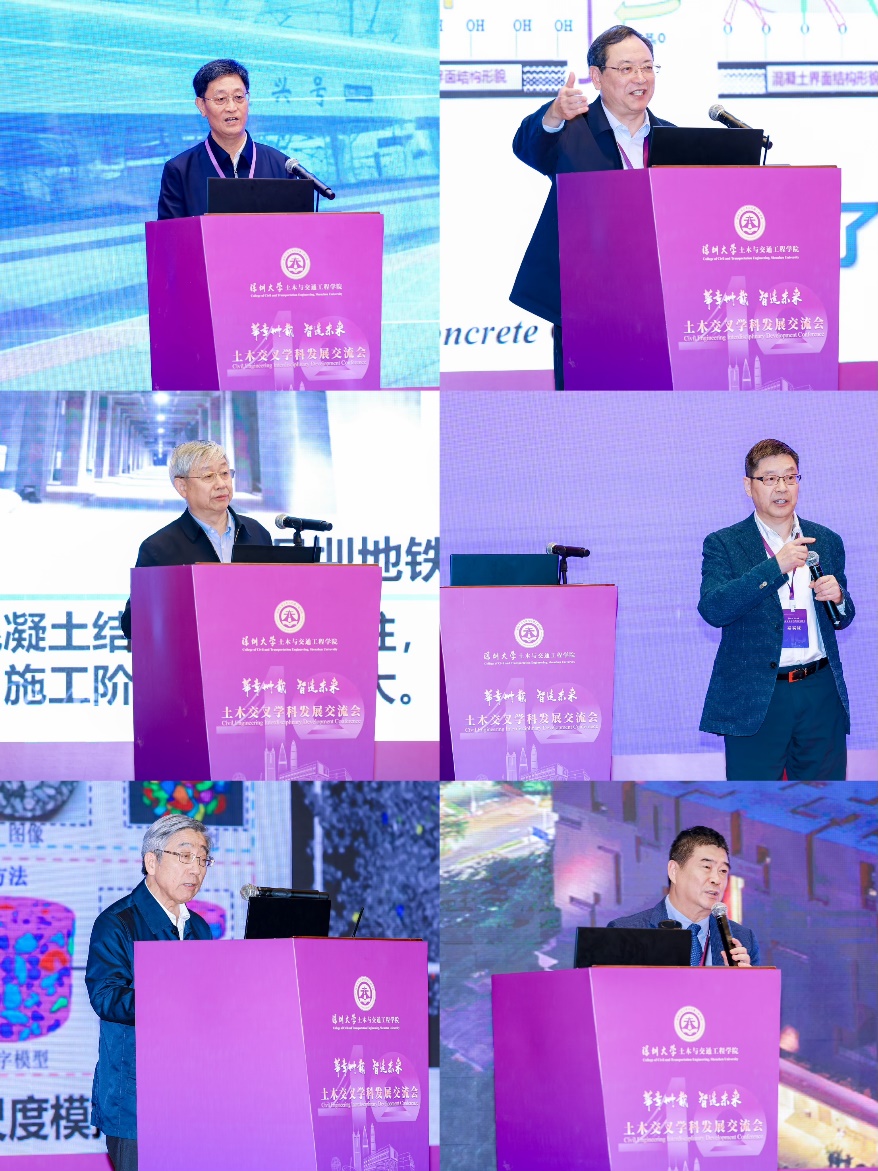
The level of scientific research continues to rise, serving major national strategies
The School of Civil and Transportation Engineering at Shenzhen University was founded in 1984 with the assistance of Tsinghua University and the joint support of the "Eight Old Schools of Architecture". It is deeply rooted in the fertile land of reform and opening up in Shenzhen, resonating and growing in synergy with the city. It has implanted Shenzhen's reform genes and innovation spirit, gradually forming a college culture and innovation consciousness that embraces diversity, advocates science, promotes military combat, freedom of exploration, and respects teachers and education.
Over the past forty years since its establishment, the college has actively participated in 54 major national engineering projects, including the Shenzhen Zhongshan Expressway, CZ Railway, and Shenzhen Metro, playing an important role in serving major national strategies and economic and social development. He took the lead in winning three national science and technology awards, more than 40 provincial and ministerial awards, cultivating two academicians of the CAE Member, and one won the "exemplary individual of the National Education System".
In recent years, the research achievements of the college have significantly increased, and the level of scientific research has continued to rise. It has established 4 national level platforms, 5 ministerial and provincial-level teaching and research platforms, and 14 city level scientific research platforms, serving major national projects and committed to solving bottleneck technical problems, effectively supporting the college's scientific research, teaching, and talent cultivation. The college teachers have led and undertaken over 350 national level vertical projects, with an average annual research contract funding of approximately 200 million yuan.
The relevant person in charge of the School of Civil and Transportation Engineering at Shenzhen University stated that the successful holding of this conference has provided guidance for the future development of the School of Civil and Transportation Engineering at Shenzhen University. The college will actively explore the reform path of teaching and talent cultivation, open a new chapter of digital and intelligent empowerment and interdisciplinary talent cultivation, and strive to cultivate "Big Civil Engineering+" composite talents with both innovation and practical abilities; We will always be committed to serving the major needs of the country, focusing on the innovative development of "low-carbon, intelligent, and resilient" civil engineering and transportation disciplines, strengthening the deep integration of technology and education, and making unremitting efforts for a safer and happier life for humanity.
